Setne Khamwas And The Book Of Magic Written By Thoth
A. Sutherland - AncientPages.com - According to an ancient Egyptian myth, it is hazardous to interfere with the dead. This warning was written down on papyri dated to the Ptolemaic Period (340-330 BC.
Pectoral from Khaemweset's Serapeum tomb burial bearing Ramesses II's cartouche. source
Setne Khamwas (also Setne Kham, Khaemwaset, Khamwese) - "he who appeared in Thebes" was the fourth son of Ramesses II and high priest of Ptah at Memphis. He was a magician who devoted his time to studying books and ancient monuments.
His mother was Istnofret, one of the most prominent of the royal wives of Pharaoh Ramesses II and Nefertari, and was the chief queen after Nefertari's death. Setne Khamwas later became famous as a 'magician'; today, he is considered the first archaeologist thanks to his interest in ancient monuments and their restoration.
For example, the 5th Dynasty pyramid of Unas at Saqqara bears Setne Khamwas' inscription high up on the south face of the structure.
One day, he was told of the existence of a book of magic written by the god Thoth himself. He learned that the book was kept in the tomb of Prince Neferkaptah, who had lived a long time ago, and his tomb was located in the vast necropolis to the west of Memphis.
The Tomb of Khaemweset is one of the finest, with beautifully preserved colors; the reliefs give prominence more to the prince's father Ramses III, than to the prince himself. Image: Public Domain
Most probably, Setne searched for the "Book of Thoth," written by the god of Wisdom. The mysterious work was the legendary repository of occult knowledge, which Neferkaptah stole, but possessing the magical book cost him his life.
Finally, Setne finds the tomb and opens it with his brother's help. He entered the tomb and saw the magical book radiating an intense light.
He tried to seize it, but the spirits of Neferkaptah, his wife and son, suddenly appeared to defend their cherished possession.
Setne had to play a board game with Neferkaptah to earn ownership of the magical book.
"If you want the book," Neferkaptah said, "you will have to play draughts for it." They took out aboard and began to play.
Setne Khamwas lost three games. After each victory, Neferkaptah hit his opponent over the head and drove him to the ground until, finally, only his head was above the soil. At this point, Setne Khamwas sent his brother to fetch his magic amulets; by their power, he could break free and grab the book.
Gold mask with the likeness of Khaemweset from the Apis bull burial. source
On his return to the outside world, he began to read avidly, ignoring all advice to return to the book.
Shortly afterward, however, he saw a beautiful woman walking past his window and was captivated by her sight. He begged her to make love to him. She said she would, but only because he hands her all his property and kills his children. Setne Khamwas agreed, little knowing that the woman was a spirit called Tabubu and that he was under her spell.
Setne Khamwas hardly had time to remove his clothes when Tabubu vanished, and the pharaoh suddenly entered the room. His embarrassment was relieved only by the news that it had all been a bad dream and his children were still alive.
He was determined to return the book to Neferkaptah's grave and relinquish ownership. He realized the book's knowledge was dangerous, and it would be better to keep it hidden forever.
Is it so that magic is a weapon reachable for humans, but the ultimate secrets of life and the world belong only to the gods?
Updated on Nov 22, 2023
Written by A. Sutherland - AncientPages.com Staff Writer
Copyright © AncientPages.com All rights reserved. This material may not be published, broadcast, rewritten or redistributed in whole or part without the express written permission of AncientPages.com
Expand for referencessource:
Clayton P. A. Chronicles of the Pharaohs
M. Bunson, Encyclopedia of Ancient Egypt
More From Ancient Pages
-
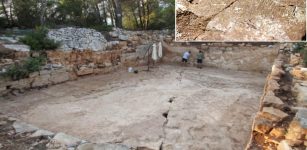 Excavations Of 2,500-Year-Old Water Cistern In Croatian Village Lumbarda – Completed
Archaeology | Oct 1, 2020
Excavations Of 2,500-Year-Old Water Cistern In Croatian Village Lumbarda – Completed
Archaeology | Oct 1, 2020 -
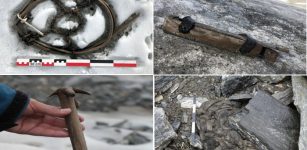 Rare Viking Artifacts Hidden Beneath The Ice Discovered By Archaeologists In Norway
Archaeology | Feb 6, 2021
Rare Viking Artifacts Hidden Beneath The Ice Discovered By Archaeologists In Norway
Archaeology | Feb 6, 2021 -
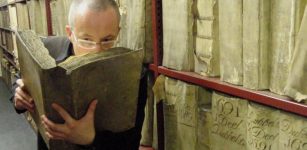 Odeuropa – Unusual Project Will Recreate The Smells Of Old Europe And Store The Scents In A Library
News | Nov 17, 2020
Odeuropa – Unusual Project Will Recreate The Smells Of Old Europe And Store The Scents In A Library
News | Nov 17, 2020 -
 Graves Of Celtic Princes Reveal How Powerful Women Were In Pre-Roman Germany
Archaeology | Jun 4, 2024
Graves Of Celtic Princes Reveal How Powerful Women Were In Pre-Roman Germany
Archaeology | Jun 4, 2024 -
 Virginia’s Mysterious Vault With Remarkable Secret Ancient Documents Still Raises Many Questions
Featured Stories | Oct 17, 2024
Virginia’s Mysterious Vault With Remarkable Secret Ancient Documents Still Raises Many Questions
Featured Stories | Oct 17, 2024 -
 Pacific God A’a: Fascinating Polynesian Sculpture Designed To Carry A Human Skull And Bones
Archaeology | Apr 9, 2016
Pacific God A’a: Fascinating Polynesian Sculpture Designed To Carry A Human Skull And Bones
Archaeology | Apr 9, 2016 -
 Could Shipworms Be Destroying The Wreck Of Captain Cook’s Endeavour?
Archaeology | Aug 18, 2022
Could Shipworms Be Destroying The Wreck Of Captain Cook’s Endeavour?
Archaeology | Aug 18, 2022 -
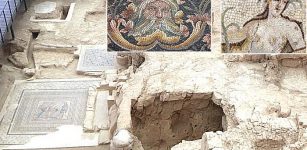 Rock-Cut Chambers In “House of Muses” Of Zeugma, Home To Numerous Mosaics
Archaeology | Jul 27, 2021
Rock-Cut Chambers In “House of Muses” Of Zeugma, Home To Numerous Mosaics
Archaeology | Jul 27, 2021 -
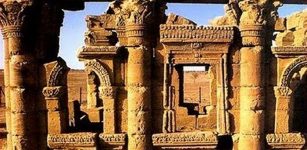 Ancient Great City Of Napata In The Kingdom Of Kush
Civilizations | Dec 30, 2015
Ancient Great City Of Napata In The Kingdom Of Kush
Civilizations | Dec 30, 2015 -
 What Were The Most Important Inca Laws That All Citizens Had To Respect?
Ancient History Facts | Aug 16, 2017
What Were The Most Important Inca Laws That All Citizens Had To Respect?
Ancient History Facts | Aug 16, 2017 -
 Evidence Of The Biggest Ever Solar Storm 14,300 Years Ago – Found In Ancient Tree Rings
Earth Changes | Oct 9, 2023
Evidence Of The Biggest Ever Solar Storm 14,300 Years Ago – Found In Ancient Tree Rings
Earth Changes | Oct 9, 2023 -
 Fascinating Virtual Avatar Of Mysterious Egtved Girl Created – What Is Her Story?
Archaeology | Dec 19, 2022
Fascinating Virtual Avatar Of Mysterious Egtved Girl Created – What Is Her Story?
Archaeology | Dec 19, 2022 -
 Groundbreaking Discovery Reveals High Cognitive Abilities In Humans Who Lived 170,000 Years Ago
Archaeology | Feb 7, 2022
Groundbreaking Discovery Reveals High Cognitive Abilities In Humans Who Lived 170,000 Years Ago
Archaeology | Feb 7, 2022 -
 Ancient Maya City And Pyramids Discovered In Mexican Jungle
Archaeology | Jun 24, 2023
Ancient Maya City And Pyramids Discovered In Mexican Jungle
Archaeology | Jun 24, 2023 -
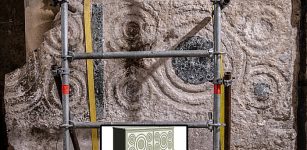 Graffiti Reveals Crusaders’ Beautiful Altar In The Church Of The Holy Sepulchre
Archaeology | Jul 24, 2024
Graffiti Reveals Crusaders’ Beautiful Altar In The Church Of The Holy Sepulchre
Archaeology | Jul 24, 2024 -
 Spicy History Of Chili Peppers – Study From University Of Alabama
Archaeology | Nov 20, 2024
Spicy History Of Chili Peppers – Study From University Of Alabama
Archaeology | Nov 20, 2024 -
 Lost Mayan City Hidden Deep In The Peten Jungle Discovered By Expedition Team
Archaeology | Mar 21, 2022
Lost Mayan City Hidden Deep In The Peten Jungle Discovered By Expedition Team
Archaeology | Mar 21, 2022 -
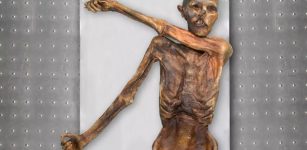 Ötzi Had Dark Skin, Bald Head And Anatolian Ancestry- DNA Reveals
Evolution | Aug 16, 2023
Ötzi Had Dark Skin, Bald Head And Anatolian Ancestry- DNA Reveals
Evolution | Aug 16, 2023 -
 Birds – Mysterious Avian Messengers That Symbolized Bridge Between Humans And Gods In World Beliefs
Myths & Legends | Aug 21, 2021
Birds – Mysterious Avian Messengers That Symbolized Bridge Between Humans And Gods In World Beliefs
Myths & Legends | Aug 21, 2021 -
 Why Was The Medieval Town Of Wagrain Suddenly Abandoned 1,300 Years Ago?
Archaeology | Oct 7, 2024
Why Was The Medieval Town Of Wagrain Suddenly Abandoned 1,300 Years Ago?
Archaeology | Oct 7, 2024



